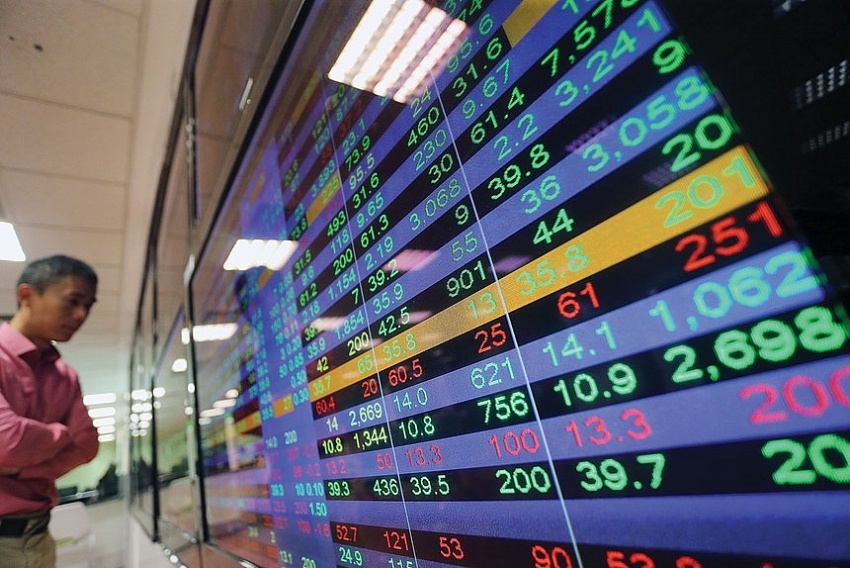Implemented guidelines aiding equitable stock market interest
 |
| Implemented guidelines aiding equitable stock market interest, illustration photo |
Foreign investment in emerging stock markets, including Vietnam, had come to an abrupt halt over fears of pandemic-induced threats. However, SSI Securities JSC anticipates a rapid return of foreign capital to Vietnam, owing to the country’s flexible monetary and fiscal policies and the currency’s stability. The VND will sustain its resilience in the face of pressure from other regional currencies to fall as a result of the USD’s strengthening when the Fed raises interest rates, SSI said.
This trend has been mirrored by the emergence of foreign-invested funds’ stronger involvement. For instance, Jih Sun Vietnam Opportunity Fund from Taiwan raised funds via an initial public offering last month with an estimated mobilised capital of around $220 million.
According to Mirae Asset Securities, most economic activities have been fully restored after 2021’s difficulties. That said, uncertainty is higher than normal because of the pandemic, fiscal and monetary policy, bad debts, and inflation. Therefore, the stock market is predicted to be more volatile in 2022.
Upon Mirae Asset Securities’ base-case projection, the VN-Index is likely to conquer the 1,700-point level this year. Under a more volatile market, the brokerage expects the VN-Index to fluctuate within the range of 1,420-1,950 points in response to earnings per share (EPS) growth and a varying price-earning ratio (P/E) within the ranges of 26–30 per cent and 14–18x, respectively.
“Compared with other regional peers, Vietnam’s stock market boasts a relatively high return on equity and reasonable P/E. Furthermore, with this economic growth and corporate earnings, Vietnam is likely to maintain a relatively attractive valuation. VN-Index’s EPS is expected to grow 19 per cent on-year in 2022, higher than most markets in the region. Therefore, we believe that the Vietnamese market still has a relatively attractive valuation compared with its peers,” the brokerage noted.
VinaCapital, likewise, stated that the number of stock market investors in Vietnam is expected to triple over the next 10 years if the country follows Taiwan’s lead in terms of legal corridor reform and more diversified products.
Furthermore, public investments continue to be the key driving force for Vietnam’s economy and the equity landscape in particular. Aggressive measures have been taken to accelerate public investments which require continuous supervision and extra assessment.
On the other hand, it is noted that recommendations from the foreign investor community have been taken seriously by the government and were turned into significant legal and market reforms in 2021. Vietnam has issued a number of official guidelines on the implementation of the Law on Securities 2019 and other banking regulations in order to ensure foreign investors’ rights and that they are treated both fairly and equitably (see box).
| Fair treatment for foreign investors New favourable fee schedules further support market participants post-pandemic. Notably, the securities ownership transferring fee at the Vietnam Securities Depository due to the restructuring of foreign investors in their home countries has been adjusted to the same amount applied for domestic restructuring enterprises, ensuring fair treatment between domestic and foreign investors. Public companies are required to announce the details of meetings and votes via electronic platforms to protect the legal rights and benefits of foreign investors at shareholder meetings. Foreign exchange and interest derivatives management Foreign investors are allowed to pay deposits in foreign currencies to participate in share auctions of equitised state-owned enterprises and divestment of state holdings in enterprises on stock exchanges. Overseas investors holding government bonds are allowed to buy foreign exchange forwards and interest derivatives for risk management. Information transparency Stock exchanges provide guidance on report submissions and information disclosure via fax or email to enable foreign investors to dislose information. Companies are to register their securities at the Vietnam Securities Depository after becoming a public company to protect investors’ rights and benefits. The Vietnam Securities Depository and stock exchanges must prepare, test, and execute contingency plans to respond to and prevent risks; supervise members’ contingency plans; report the results to the State Securities Committee; and publish these on websites annually. |
What the stars mean:
★ Poor ★ ★ Promising ★★★ Good ★★★★ Very good ★★★★★ Exceptional
Related Contents
Latest News
More News
- Cashless payments hit 28 times GDP in 2025 (February 04, 2026 | 18:09)
- SSIAM and DBJ launch Japan Vietnam Capital Fund (February 04, 2026 | 15:57)
- Banks target stronger profits, credit growth in 2026 (February 04, 2026 | 15:43)
- Vietnam on path to investment-grade rating (February 03, 2026 | 13:07)
- Consumer finance sector posts sharp profit growth (February 03, 2026 | 13:05)
- Insurance market building the next chapter of protection (February 02, 2026 | 11:16)
- NAB Innovation Centre underscores Vietnam’s appeal for tech investment (January 30, 2026 | 11:16)
- Vietnam strengthens public debt management with World Bank and IMF (January 30, 2026 | 11:00)
- Corporate bond market poised for stronger growth cycle (January 28, 2026 | 17:13)
- Vietnam's IPO market on recovery trajectory (January 28, 2026 | 17:04)

 Tag:
Tag:




















 Mobile Version
Mobile Version